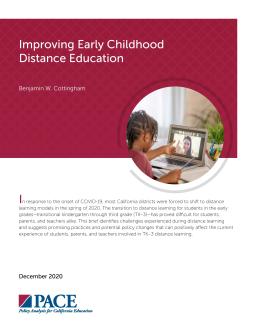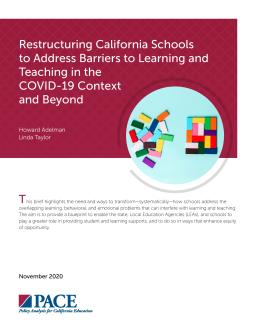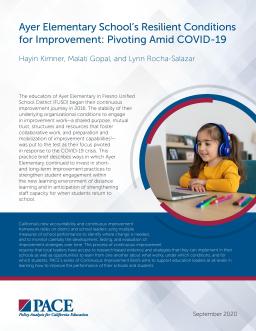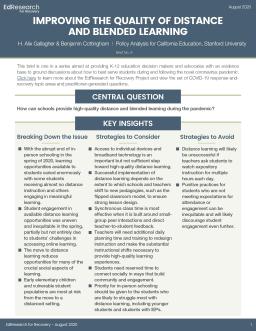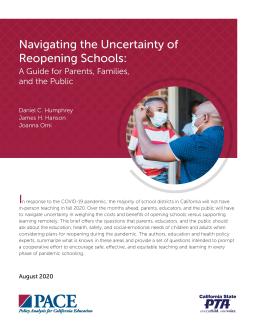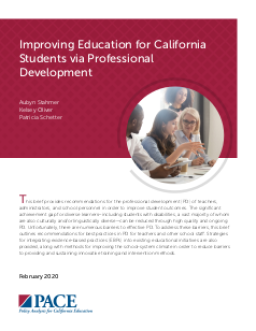Summary
Summary
This brief was developed by California-based family and student engagement organizations, associations representing educators and system leaders, research institutes, and civil rights and equity groups. The recommendations arise from the evidence that has collectively emerged from focus groups with educators, parents, and students; polls and surveys of stakeholders; a deep review of the literature; and original research conducted on COVID-19’s impact on schools and students.
Summary
Summary
Summary
Summary
Summary
Summary
This article provides 10 recommendations based on the PACE report to help educators and district leaders provide high-quality instruction through distance and blended learning models in the 2020-21 school year. Despite the challenges of COVID-19, research can guide decisions about student learning and engagement. These recommendations can be used as a framework to prioritize quality instruction.
Summary
Summary
Summary
Summary
Summary
In the run-up to 2020 elections, where do California voters stand on key education policy issues? This report examines findings and trends from the 2020 PACE/USC Rossier poll. Key findings include rising pessimism about California education and elected officials, continued concern about gun violence in schools and college affordability, and negative opinions about higher education. However, there is substantial support for increased spending, especially on teacher salaries.
Summary
The 2018 Getting Down to Facts II research project drew attention to California’s continued need to focus on the achievement gap, strengthen the capacity of educators in support of continuous improvement, and attend to both the adequacy and stability of funding for schools. Based on the nature of the issues and the progress made in 2019, some clear next steps deserve attention as 2020 unfolds.


